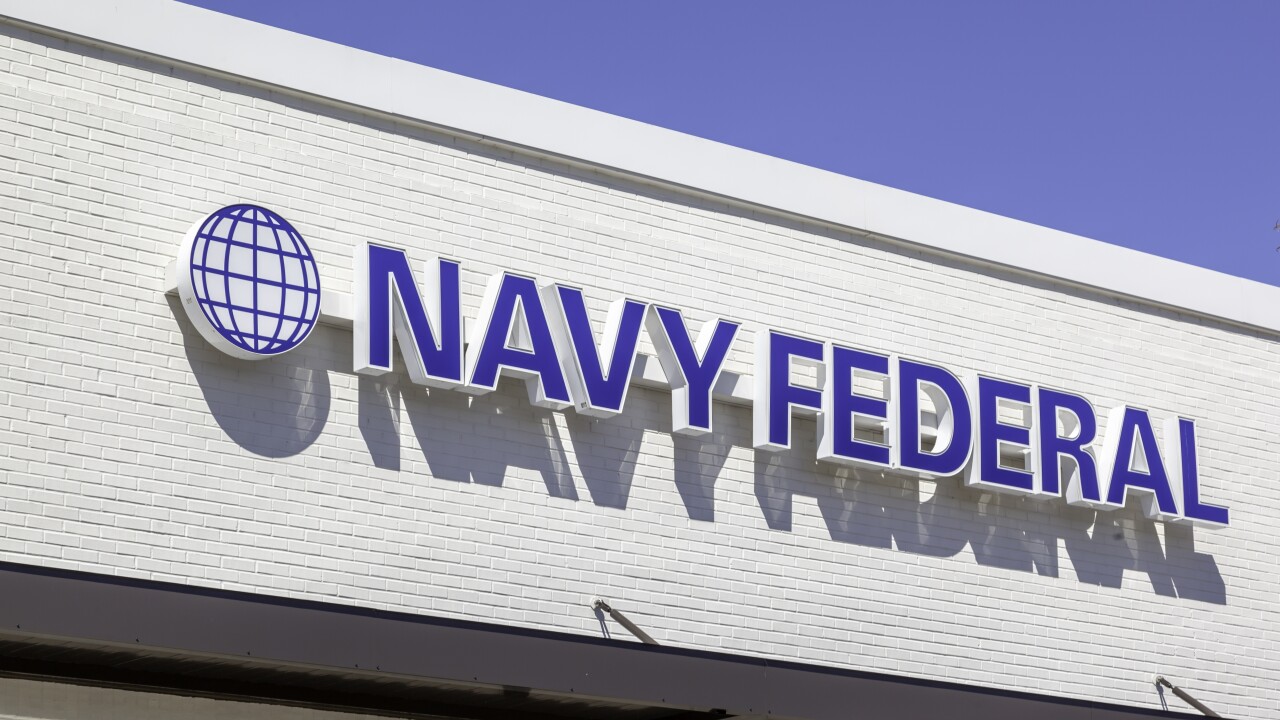
Get ready for financial services to get cheaper. And better. And easier to use. The Consumer Financial Protection Bureau has signaled that, within weeks, it will publish the final rules for a regulation requiring banks to honor consumers' and small businesses' financial data rights.
Banks are sitting on a treasure trove of deposit and credit card data. This data shows how much money people earn and spend, and banks have been using it for years to qualify people for loans or offer other services. But the Dodd-Frank Act of 2010 confirmed that the data in that treasure trove belongs to the consumers and small businesses who own those accounts. The right to this data may seem abstract, but it does have value. It will save and earn people money.
First, consumers and small businesses would stop paying so many bank fees, earning sub-par interest or paying too much for loans. If the CFPB's regulations are successful, switching accounts from one bank to another will become easier — more like porting your phone number from Verizon to T-Mobile. (Remember when the cell phone carriers used to be able to trap your phone number if you tried to switch carriers?) By requiring banks to let people send their data to other financial companies who might offer them a better deal, these new rules will help people switch away from banks that are charging high overdraft fees or charging too much for credit card loans. But to ensure this consumer benefit, and really turbocharge price competition, the CFPB regulations should require interest rate and fee information to be shareable.
Second, the new rules can address barriers that have tied people to banks they've wanted to break up with. The average consumer has one direct deposit and over ten subscriptions attached to their bank accounts. None of us want our Netflix, let alone our electric bill, to be shut off. The CFPB's new rules, if done right, will enable new services to be developed that can review bank account transactions to quickly identify direct deposits and subscriptions associated with one account, and then help customers move those automated deposits and subscription payments to better accounts.
Similarly, the new rules should also address trapped bill pay data. It can be daunting to start over with a new bank account and set up automated bill pay services all over again, including re-typing addresses or bank account numbers for a landlord or utility company to be sent a monthly check. The rule will hopefully allow people to export these automatic bill pay setups when they switch accounts, so switchers don't have to risk missing payments. This portability will not only make customers' lives easier when they decide to switch, but it would offer one more reason for banks to treat customers better to prevent them from switching in the first place.
The world's biggest credit union will become the provider of banking services for U.S. armed forces members abroad, stepping into a void left by Bank of America. One credit union trade group is concerned that a potential deposit insurance snafu could threaten the program's viability.
Third, the CFPB's new rules can be especially helpful in lowering the cost of credit for consumers and business owners who have lower credit scores. Whatever score a credit bureau has assigned, a look at the bank account data may show that the applicant actually has the income to repay a loan, despite the backward-looking credit score. New business owners would especially benefit, since they often see their credit scores drop after using credit cards to fund business expenses even though the cash flow in their bank accounts continues to reflect a creditworthy, thriving business.
This type of underwriting, based on borrowers' actual ability to repay given their income and expenses, is sound lending the old-fashioned way. It can be an alternative to credit scores, which are based on the past behavior of thousands of other people rather than on an individual applicant's own financial fundamentals.
But even beyond these three potential benefits of successful CFPB regulations, the most exciting benefit could be innovation itself — i.e., the development of new and better financial services. The flow of data will enable new technology platforms to create a host of new pro-consumer services. These new businesses could include phone apps that look over our bank account data to provide tips on where we could earn the most with our savings or save money on loans. Or auto-pilot services that help pay down our loans in the most cost-effective way. These ideas just scratch the surface of what is possible.
However, as people gain the ability to share their data that banks have been holding, privacy and data security are chief concerns. Personal data should only be seen by those the customer shares it with, and it must be kept safe from hackers. The CFPB should even impose limits on how the data can be used, while leaving enough room for financial services companies to use the data in ways that create real value for consumers and small businesses.
After a 13-year wait since the law requiring personal data rights passed Congress, it feels like we are finally finding the treasure at the end of the rainbow. We're ready.






